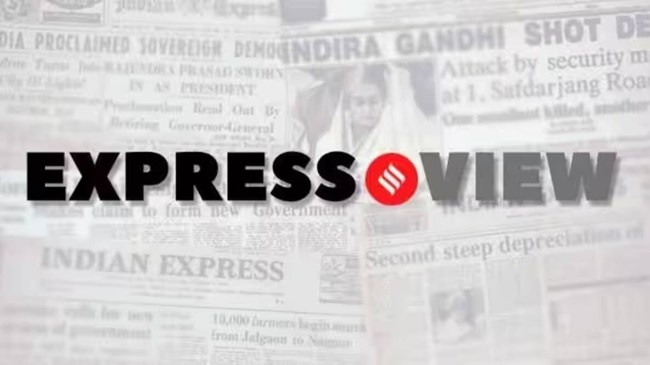Opinion In Hapur, a marriage ceremony, a moral outrage and a heartening change in script
It seems that it is the women who find it easier to read the changing script. The men? They were the ones outraging and brawling.
 In western UP's Hapur, though, the kiss turned out to be the beginning of what could well be a Hrisihikesh Mukherjee movie script.
In western UP's Hapur, though, the kiss turned out to be the beginning of what could well be a Hrisihikesh Mukherjee movie script. A lover’s kiss is usually the denouement that most romances await. Boy meets girl. Love blooms. Then comes the lovers’ trial, at the end of which the path to happily-ever-after emerges. In western UP’s Hapur, though, the kiss turned out to be the beginning of what could well be a Hrisihikesh Mukherjee movie script. The band, baaja and baraat were in attendance, so were the guests. On the mandap, the garland exchange between the bride and the groom had just happened. And then came the plot twist: A kiss on the forehead of his childhood-sweetheart-now-almost-wife set the sanskari tempers rising at the so-called transgression. The wedding was called off, a brawl ensued. But wait, that’s not where the story ended.
That night, the young woman eloped to her beau’s place, where the wedding was solemnised, the ceremony overseen, among others, by the groom’s mother. The fracas of the previous day, she said later, amounted to naught: After all, “If a husband doesn’t kiss his wife, who else will?” In a country where public displays of affection have been battlegrounds for the young trying to assert their freedoms and where the line between affection and obscenity blurs at the discretion of a conservative moral police, could there be a more refreshing narrative frame than the nonchalance of the mother of the groom?
In 2014, the vandalisation of a cafe in Kozhikode for allowing young couples to hold hands or kiss had led to the Kiss of Love protests across the country. Since then, Indian cities have see-sawed between greater accommodation of public displays of intimacy and patriarchal outrage over “immoral activities”. One thing stands out though: Like the groom’s mother, or his sister who stood with the couple. It seems that it is the women who find it easier to read the changing script. The men in the family? They were the ones outraging and brawling.




